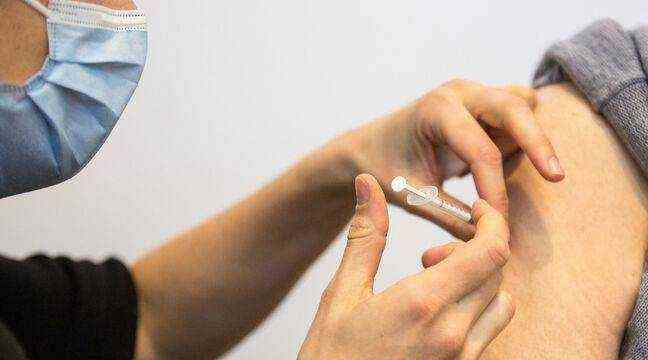After being infected, vaccinated or both, should we fear being (again) infected with Covid-19? While the number of cases has been falling steadily for the past few days, the long-term protection of the vaccine is questioning part of the population. The question of using a third dose arises, while the recall campaign has just begun for people 65 years of age and over, as well as those with co-morbidities.
the virology laboratory Toulouse University Hospital decided to look at the antibody levels of 8.758 of its employees, which it has been following since the first wave of contamination, to determine which antibody levels were the most protective. “We have two cohorts, those of infected and vaccinated people, and that of people vaccinated without prior infection,” explains Chloé Dimeglio, bio statistician in the laboratory, who has just published a study on the subject in the magazine. Journal of infection.
After a serology, she was able to establish the levels of antibodies in the blood which make it possible to protect, or not, against Sars-Cov2. “Those with a total antibody titer below 141 have a protection rate of 12.4%. For those who had an antibody titer above 1,700, there had been no infection or reinfection. Between the two, the protection rate is around 90% protection, which means that they are 90% protected from an infection and a fortiori from a serious form, ”explains the researcher.
Infected unvaccinated very poorly protected
The vast majority of people infected and then vaccinated had an antibody titer above the fateful threshold of 1,700 one month after their first injection, some even reaching the same figure of 147,000, in other words a XXXL protection.
One month after their second dose, none of the vaccinated employees had an antibody titre below the fateful threshold of 141. “There are only a few above 1,700 but the overwhelming majority are in the intermediate category. », Specifies the bio statistician.
On the other hand, among those infected but not vaccinated, 79.3% found themselves three months after their infection with total antibody titers below 141, and therefore again vulnerable to the virus. However, a previous virology laboratory showed that the natural antibody levels of infected people began to decrease nine months after being sick.
Serology before a booster?
“In this category, we also find the immunocompromised, especially transplant recipients who have had a third dose. For these fragile people, this leads us to think about continuing the vaccination process or giving them monoclonal antibodies, manufactured specifically to treat the disease, ”says Chloé Dimeglio.
For her, recourse to serology could therefore be a means of adapting the vaccine strategy in the future. The long-term impact of the first two doses of vaccine on antibody levels has yet to be determined, because like natural protection after infection, these drop over time.

